 |
We have TPS reports to fill out and boring e-mail to answer and all manner of drudge work that doesn’t necessarily fire our soul.
|
62 |
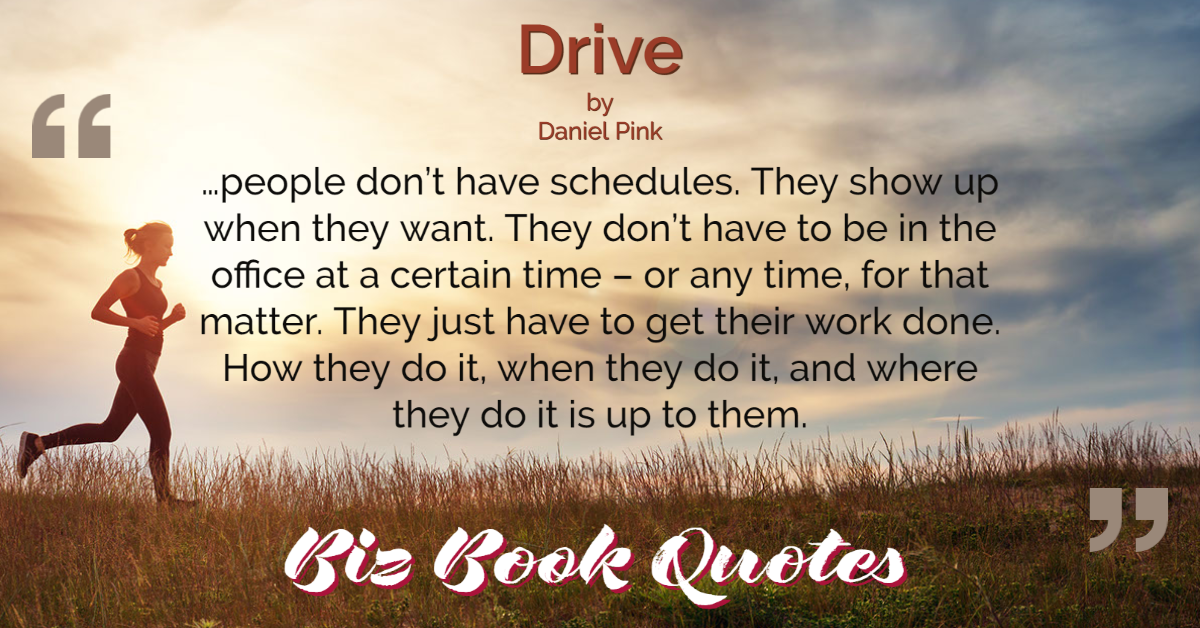 |
…people don’t have schedules. They show up when they want. They don’t have to be in the office at a certain time – or any time, for that matter. They just have to get their work done. How they do it, when they do it, and where they do it is up to them.
|
86 |
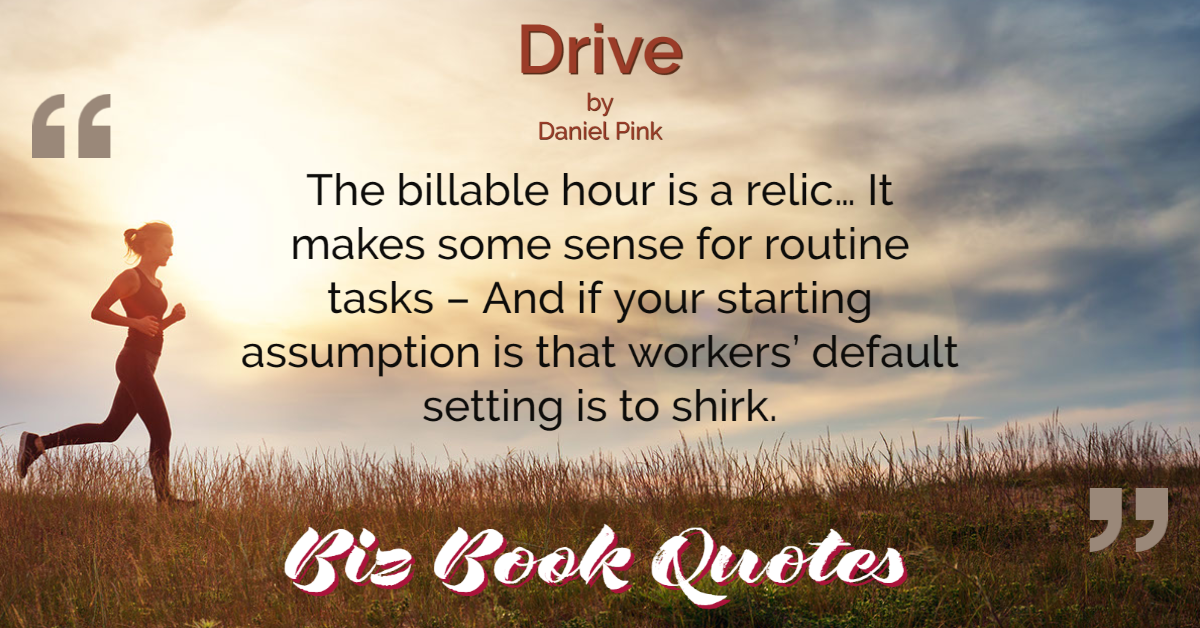 |
The billable hour is a relic… It makes some sense for routine tasks – And if your starting assumption is that workers’ default setting is to shirk.
|
99 |
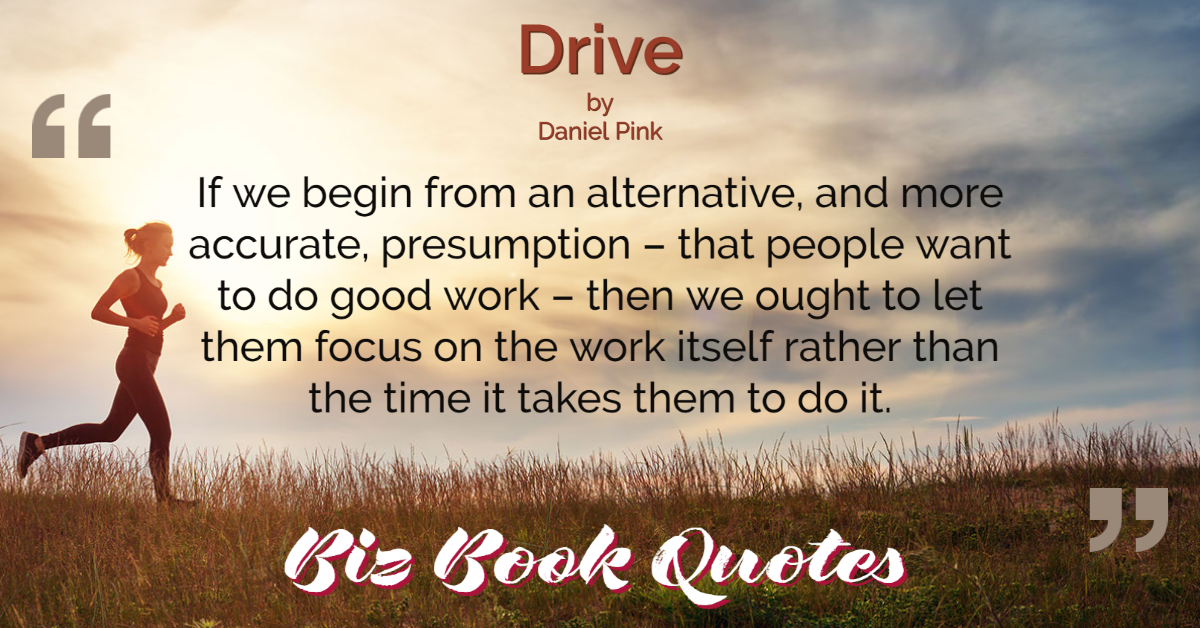 |
If we begin from an alternative, and more accurate, presumption – that people want to do good work – then we ought to let them focus on the work itself rather than the time it takes them to do it.
|
100 |
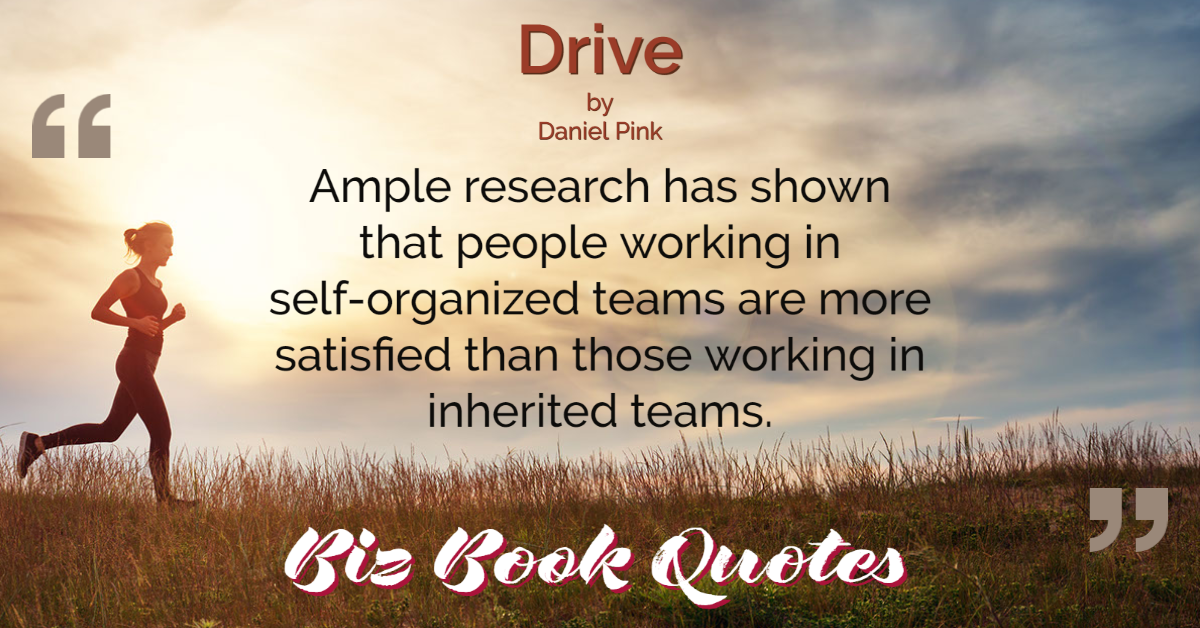 |
Ample research has shown that people working in self-organized teams are more satisfied than those working in inherited teams.
|
106 |
 |
…studies… have shown that people high in intrinsic motivation are better coworkers. And that makes the possibilities on this front enormous.
|
106 |
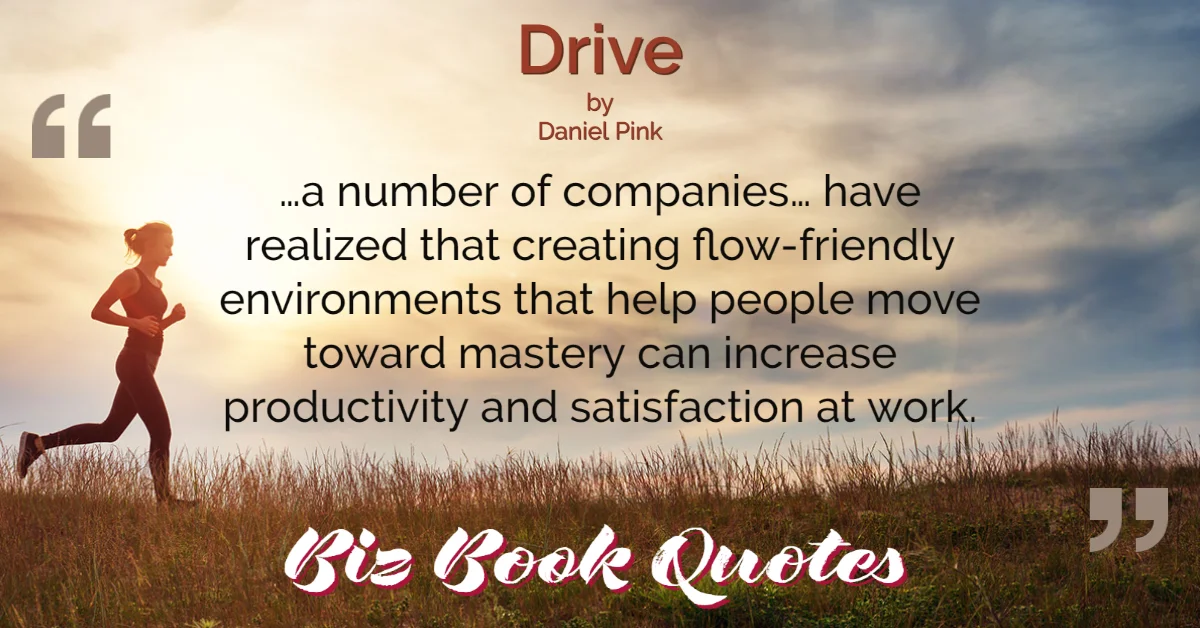 |
…a number of companies… have realized that creating flow-friendly environments that help people move toward mastery can increase productivity and satisfaction at work.
|
117 |
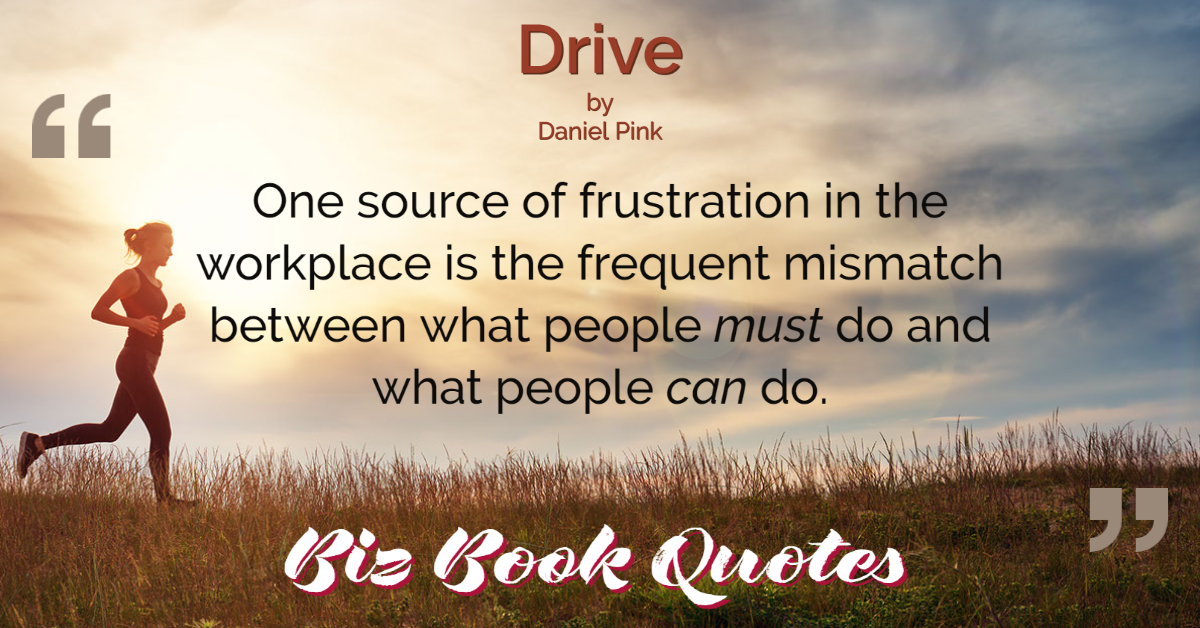 |
One source of frustration in the workplace is the frequent mismatch between what people must do and what people can do.
|
119 |
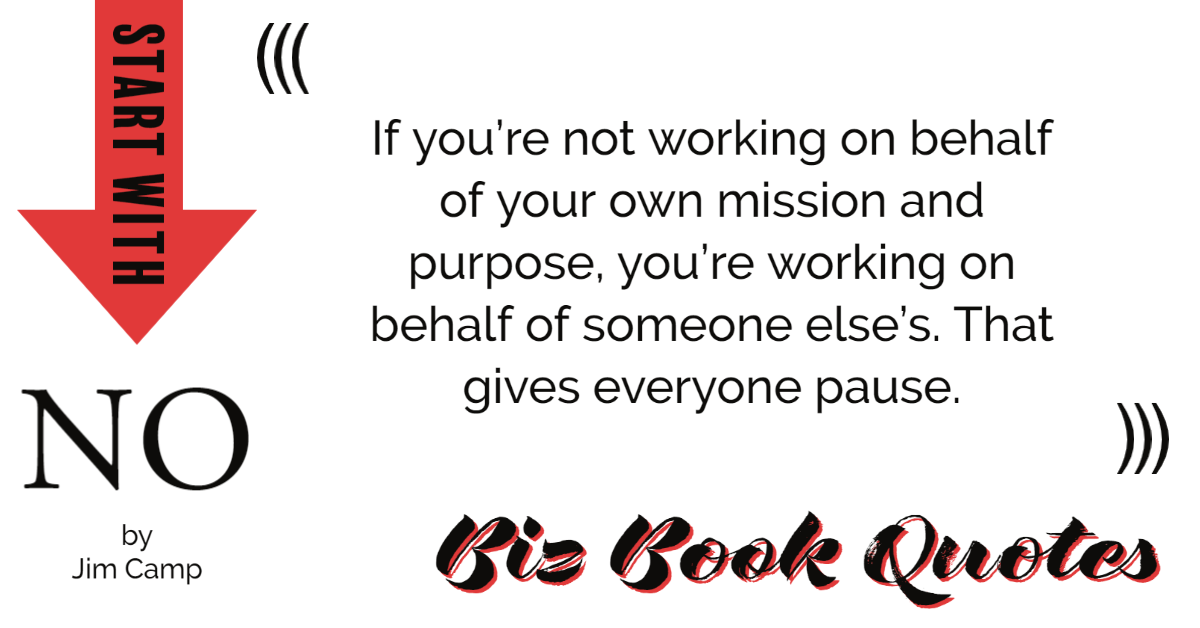 |
If you’re not working on behalf of your own mission and purpose, you’re working on behalf of someone else’s. That gives everyone pause.
|
75 |
 |
Payside activity does have potential reward, but it also holds risk, and it’s hard work. This can thwart us – but we must not let it.
|
96 |